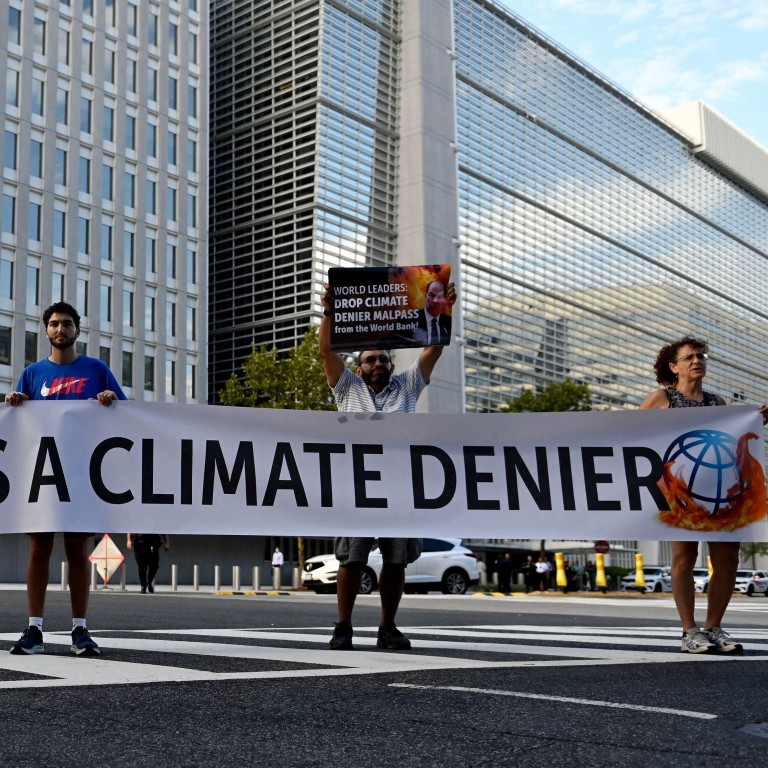
World Bank and other multilateral bodies need reform, but still have critical role to play
- The resignation of the World Bank chief has renewed discussion of the failings of multilateral organisations
- While calls for reform of these institutions are justified, problems like the global pandemic, climate change or the threat of nuclear war cannot be addressed without them
Environmentalists were reportedly jubilant. “This is great news,” one activist was quoted by Reuters as saying. “It is hard to think of a worse fit for World Bank President than an alleged climate denier and the chief economist of Bear Stearns ahead of the 2008 recession.”
Last week, US President Joe Biden nominated Ajay Banga as Malpass’s successor. Who again? Banga is a US citizen, who worked for Nestle, Pizza Hut and KFC in India, before moving on to Citigroup, and then Mastercard, where he served as global CEO from 2010 to 2020. In short, apart from being unknown in development lending circles, his impeccable private-sector credentials offer no comfort to those pressing for World Bank reform.
Some have called for the abolition of these institutions, which they see as hives of nepotism, corruption and wastefulness, while hypernationalists like Trump and his base resent the constraints these bodies place on their country.
It is not only when addressing the global pandemic, climate change or the threat of nuclear war that it is clear there are certain problems which transcend geographical, national or ideological boundaries.

As UN Secretary General Antonio Guterres said in his address to the General Assembly last September: “No major global challenge can be solved by a coalition of the willing. We need a coalition of the world.”
This conviction is reminiscent of the words of then US president Franklin D. Roosevelt at the Yalta Conference between the United States, United Kingdom and the Soviet Union in 1945. He said the conference’s efforts “ought to spell the end of the system of unilateral action, the exclusive alliances, the spheres of influence, the balances of power, and all the other expedients that have been tried for centuries – and have always failed”.
The sentiment was also echoed in 2016 by Antony Blinken, now US secretary of state: “There remains no substitute for the work the UN does, the legitimacy it brings, the reach it allows.”
So, despite the decline in support for global cooperation and multilateralism since Trump’s presidency, the pressure on the world’s leading multilateral organisations is for reform, rather than abolition.
There are certain global imperatives on which countries like China and the US need to put aside their rivalry and focus on problem-solving. If our indispensable multilateral institutions are to be effective, and the likes of Ajay Banga are to succeed, then we depend on it.
David Dodwell is CEO of the trade policy and international relations consultancy Strategic Access, focused on developments and challenges facing the Asia-Pacific over the past four decades


